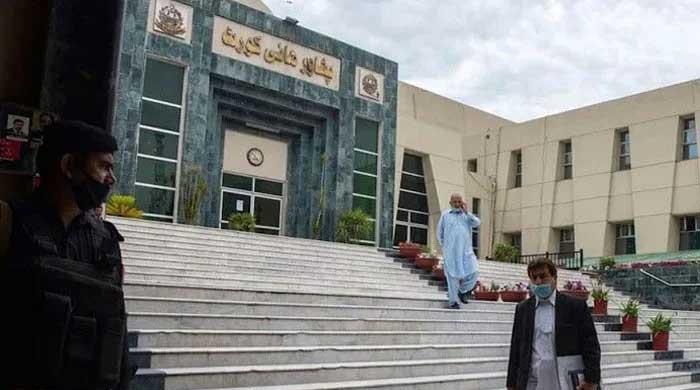
PHC Requests Governor's Availability for CM-Elect's Oath-Taking Ceremony
In a significant development in the political landscape of Khyber Pakhtunkhwa, the Peshawar High Court (PHC) has taken an important step towards the swearing-in ceremony of the newly elected Chief Minister (CM). On Tuesday, the court instructed the Additional Advocate General to confirm the availability of Khyber Pakhtunkhwa Governor Faisal Karim Kundi for administering the oath of office to the CM-elect.
Background of the Situation
The political dynamics in Khyber Pakhtunkhwa have been closely watched in recent months, especially with the recent elections that have led to the appointment of a new Chief Minister. The oath-taking ceremony is a crucial event that marks the official start of the new administration. It is a ceremonial but significant moment that sets the tone for the governance that is to follow.
The PHC's involvement underscores the importance of following legal protocols and ensuring that the transition of power is executed smoothly. Governor Faisal Karim Kundi's role in this ceremony is pivotal, as he is the constitutional authority responsible for administering the oath to the CM-elect.
The Role of the Governor
Governors in Pakistan play a crucial role in the political framework of their respective provinces. They are appointed by the President of Pakistan and serve as the representative of the federal government at the provincial level. Their responsibilities include overseeing the provincial government, ensuring that laws are upheld, and facilitating the smooth transition of power during elections.
In the context of Khyber Pakhtunkhwa, Governor Kundi's availability for the oath-taking ceremony is not just a formality. It reflects the adherence to constitutional processes and the rule of law, which are essential for maintaining political stability in the province.
Importance of the Oath-Taking Ceremony
The oath-taking ceremony is more than just a procedural formality. It symbolizes the trust placed in the elected official by the public and marks the beginning of their responsibilities towards the constituents. The newly elected CM will have the opportunity to lay out their vision for governance and set the agenda for their term in office.
This event also serves as a platform for political leaders to rally support and convey their messages to the public. The ceremony is typically attended by various dignitaries, including other political leaders, members of the media, and the public, making it a significant occasion in the political calendar.
The Current Political Climate
As Khyber Pakhtunkhwa navigates this transition, the political climate remains charged with anticipation and speculation. The incoming CM will need to address various pressing issues, including economic challenges, security concerns, and public welfare initiatives. Ensuring that the oath-taking ceremony proceeds without any legal hurdles is crucial for maintaining the momentum of governance.
The involvement of the PHC also highlights the judiciary's role in upholding democratic processes and ensuring that elected officials are sworn in promptly. This reflects a commitment to the rule of law and the principles of democracy, which are vital for the healthy functioning of the political system.
Conclusion
As the Peshawar High Court seeks confirmation of Governor Faisal Karim Kundi's availability for the oath-taking ceremony, the political landscape of Khyber Pakhtunkhwa stands at a pivotal moment. The transition of power is not merely a procedural step; it is a reflection of the democratic will of the people and the responsibilities that come with elected office.
The PHC's involvement reinforces the importance of adhering to constitutional protocols and maintaining the integrity of the political process. As the newly elected CM prepares to take office, the focus will now shift to the challenges and opportunities that lie ahead.
---
FAQs
1. What is the role of the Khyber Pakhtunkhwa Governor in the oath-taking ceremony?
The Governor of Khyber Pakhtunkhwa is responsible for administering the oath of office to the newly elected Chief Minister. This role is a constitutional requirement that symbolizes the formal transfer of power.
2. Why is the oath-taking ceremony significant?
The oath-taking ceremony is significant as it marks the official start of the new administration and symbolizes the trust placed in the elected official by the public. It also serves as an opportunity for the CM to outline their vision and agenda.
3. What is the Peshawar High Court's involvement in this process?
The Peshawar High Court has instructed the Additional Advocate General to check on the Governor's availability for the oath-taking ceremony, emphasizing the importance of legal protocols in the political transition.
4. How does this event affect the political climate in Khyber Pakhtunkhwa?
The oath-taking ceremony can influence the political climate by setting the tone for the new administration's policies and initiatives. It also serves as a platform for political leaders to garner support and communicate their plans to the public.
5. What challenges will the new Chief Minister face?
The new Chief Minister will face various challenges, including economic issues, security concerns, and the need for effective public welfare programs. Their ability to address these challenges will be critical to their success in office.
Tags
National
